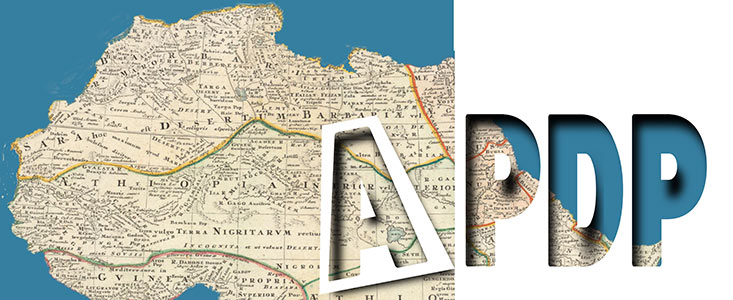A Survey of African Poetry in the London Times, Sunday Times, Financial Times, the Times Literary Supplement 1865-1985
“A Critical Reading of Robert Fraser’s Comments on Christopher Okigbo in His TLS Article, “Far Remove”
Robert Fraser examines Christopher Okigbo's life through the eyes of those inspired by Okigbo's life and poetry before, during, and after the Biafran war, specifically Obi Nwakanma's biography of Okigbo, Thirsting for Sunlight, where we gain insight into Okigbo's place in a world that was predominately shaped by European standards and assertions of political turmoil and docility, in which Okigbo diverts our attention from, having the reader focus solely on his prophetic and lyrical journey of the African poetry coming out of, in this case, Nigeria's independence from Britain in 1960 and before it as well. Not preoccupied with the pessimistic assumptions of the readers of his poetry in relation to the political nature surrounding his writing, Okigbo is more preoccupied with the spiritual pilgrimage through "dislocation but travels through realization to a state of completion or recreation," (Nwosu 73), as mentioned in Christopher Okigbo and the Postcolonial Market of Memories.
Fraser accuses Africa as a continent "eager for heroes," which ultimately brings in how African writers and readers are deemed eager for saviorism after their colonization, and/or during their colonization. Here, it is presumed that Fraser takes Nwakanma's biography of Okigbo as a lesson on the complexity of Okigbo's work, more pessimistic than optimistic as Okigbo or Nwakanma may have hoped for their readers. Fraser seems to indicate that Okigbo's contemporaries are playing catch up when it comes to creating work inspired by Okigbo's poetry, which is ultimately a narrative too often seen in Western media. While it may be difficult to draw the same tone and lyricism from Okigbo, to presume it as a "rise to more bad imitations that any other poet" is rooted in an oppressive cycle of cynicism and pessimism for future African poets from the Western scene. Okigbo was courageous, as Fraser mentions, but Fraser also mentions that the only constant that Okigbo had was his verse. This alludes to the idea that Okigbo was rebellious in nature, instable when it came to sticking to one place at one time, but Okigbo is seemingly aware that stability in nature is uncertainty in the journey of his poetic form and writing in general. What I mean here is that Fraser seems to be contradictory in portraying Okigbo for the writer of Igbo folklore, the classical and the natural, as mentioned in Nwakanma's biography of Okigbo.
From what is seen in his poetry, Okigbo does not romanticize the ideas of colonialism and politics of the upcoming Biafran war, but in this article, Fraser seems to be insinuating that Okigbo is driven by the "political turmoil" of Nigerian post-independence. Okigbo work is seemingly intertwined with reassertion of culture and resistance to the colonial atmosphere, as seen in his prophetic verse and lyrical form. We see this in Siren Limits(?), published in 1962 (?), in which Okigbo writes,
"I have had my cleansing…
Emigrant with air-borne nose"
Okigbo does not give life to the colonial implications of British rule, but rather signifies the buoyance of hope and reemerged culture as he hints at in the verse above. He has "had his cleansing" of the European standards and assertions of submissiveness, but has regained hope in the face of constant movement.
Here we see lyrical intertwined with the spiritual, in which Okigbo gives us insight into the journey of memories of home and movement, seeking affection for the past. Combining what is presumed to be his Christian affiliation and the Igbo identity that he held dear, Okigbo grants us the reemergence of his homecoming to the post-colonial world. He writes in Distances (1964) (?):
"But what does my divine rejoicing hold? A bowl of incense, a nest of fireflies?
I was the sole witness to my homecoming."
We witness Okigbo's homecoming from that of the Western influence on African identities and writings, but Okigbo grants us a homecoming of culture and immersive lyricism and idiom, which Fraser seemingly fails to mention in this news article. Focused primarily on Okigbo's constant state of movement, Fraser takes Nwakanma's biography in contradictory stances, insisting that it is a hard project to take on but that the author is concerned with making Okigbo favored in the eyes of his subjects. Fraser does not mention Okigbo's poetry and resistance to the colonial narratives placed upon himself and his contemporaries but mentions Okigbo's "faults" and distancing of his mental place, insinuating them as inconsistencies rather than planned out experiences by Okigbo himself. A difficult approach to the article rests with Fraser's intentions on reviewing Obi Nwakanma's biography in light of Okigbo's work and influence in and out of Africa; is Fraser preoccupied with the life of Okigbo as a soldier, in which the life of Okigbo in relation to his military involvement is brought in appropriately, or is Fraser more preoccupied with the disagreement of Okigbo's choices as a poet?
Zainab Saleh is a first-year M.A. student in Literary and Cultural Studies at the University of Nebraska-Lincoln. March 18, 2020


